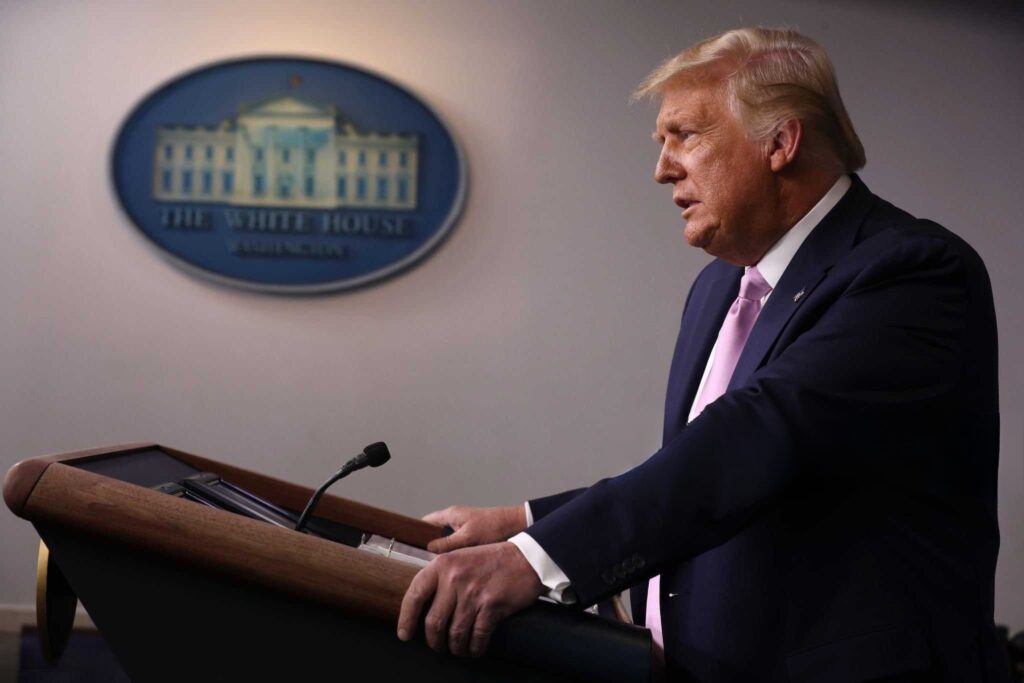US President Donald Trump has signed an executive order to impose new tariffs on American trade partners. This move aims to reduce the United States’ trade deficits. Trump made the announcement from the Oval Office, saying these tariffs would create a fairer system for US manufacturers. He emphasized that the tariffs would prevent other countries from complaining about unfair trade practices.
The tariffs will vary by country. Trump’s goal is to encourage better trade terms between the US and other nations. The US has long had concerns about trade imbalances. Trump believes these tariffs will fix the issue by making sure foreign manufacturers play by the same rules as US businesses.
The Impact on US Consumers and Businesses
The new tariffs are already causing concern. Economists are warning that they could increase prices for American consumers. Goods imported from other countries, such as electronics and clothing, may become more expensive. This could hurt the average American household, as everyday products might cost more. The increased prices could slow down the economy. Businesses could struggle to keep costs down, and inflation may rise.
Higher tariffs may also hurt small businesses that rely on cheaper imports. They might not be able to afford the extra costs. Even big companies may find it harder to maintain their profit margins. This could lead to job cuts in certain industries. If companies struggle to pay for imports, the workers may feel the impact.
Some experts, like Scott Lincicome, argue that the tariffs will only raise taxes on Americans. He believes the move shows that the US government doesn’t fully understand how the global economy works. Lincicome points out that trade deals are much more complicated than just balancing imports and exports. He warns that these tariffs could lead to higher prices for American goods and services.
The Role of Value-Added Taxes and Subsidies
Trump’s new policy also targets value-added taxes (VAT) in Europe and subsidies provided by foreign governments. The President believes these taxes help foreign manufacturers sell goods at a lower price, which harms US companies. He wants to change how these taxes work in trade deals.
But not everyone agrees with this view. The European Union has defended its VAT system. EU officials argue that VAT is not designed to give foreign companies an unfair advantage. Instead, it is used as a way to generate government revenue. This disagreement over VAT could make international trade relations more complicated.
Global Reactions and Risks of Retaliation
The decision to impose tariffs has not been welcomed by all countries. China, Mexico, Canada, and the European Union are expected to retaliate. These countries may impose their own tariffs on US goods. This could create a trade war, where both sides raise tariffs on each other’s products. A trade war would be harmful for both sides. It could lead to higher prices, fewer jobs, and weaker economies.
Despite these warnings, Trump’s team is confident that the new tariffs will help the US. A senior official in the White House said that the revenue from the tariffs could help reduce the US’s $1.9 trillion budget deficit. This money could be used to fund government programs. Officials also said they would monitor the impact of the tariffs and adjust them as needed.
Will the Tariffs Work?
The new tariffs may have some benefits for American manufacturers. If foreign products become more expensive, US-made goods might become more attractive. But these benefits may not last. The higher prices could hurt consumers and lead to slower economic growth.
Many companies could face higher costs for raw materials and goods. This might lead to them cutting back on jobs or raising prices to make up for the added expense. Consumers would feel the effects of these higher prices in their everyday spending. In the long run, it is unclear if the tariffs will actually reduce the trade deficit. Some experts think the risks may outweigh the benefits.
The Future of US Trade Policy
President Trump’s decision to impose tariffs marks a big shift in US trade policy. For years, he has promised to tackle trade imbalances. Now, with these new tariffs, he hopes to make the US more competitive on the world stage. But there are risks. These tariffs could hurt both consumers and businesses. The potential for a trade war with other countries is also very real.
While Trump believes these tariffs will protect American jobs and reduce the trade deficit, the global economy is watching closely. If other countries retaliate, the US could face even more economic challenges. The long-term effects of these tariffs are still uncertain.
As negotiations continue, the world waits to see what the future holds for global trade. Whether or not Trump’s strategy will succeed remains to be seen.
For more updates on this topic, visit Euro News 24.
